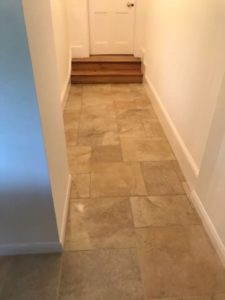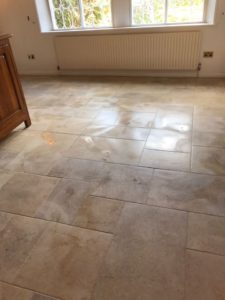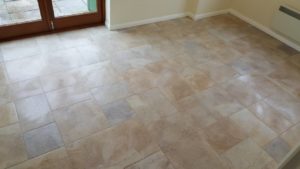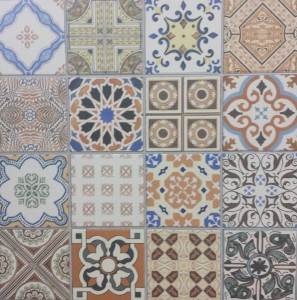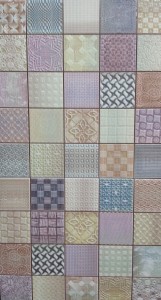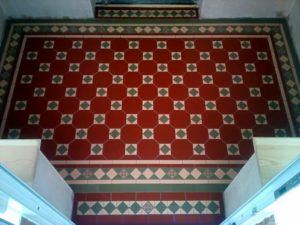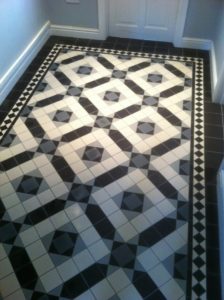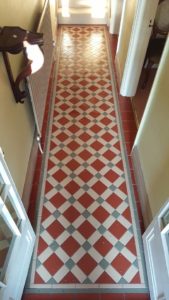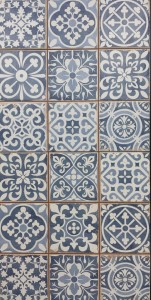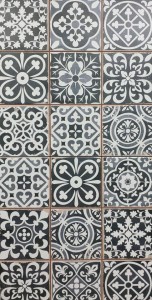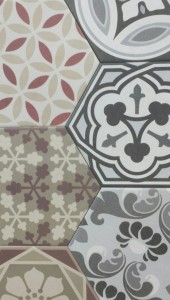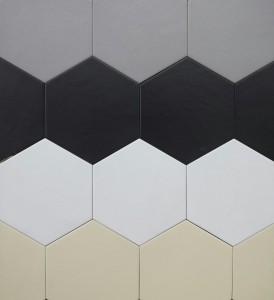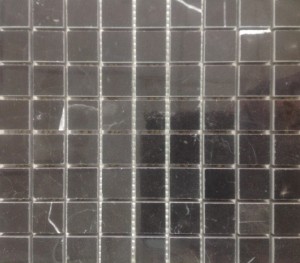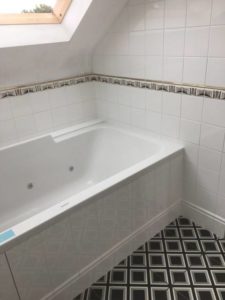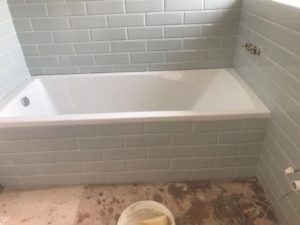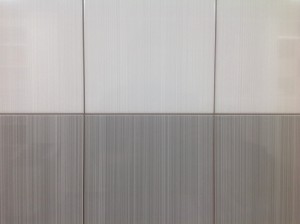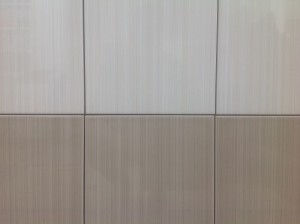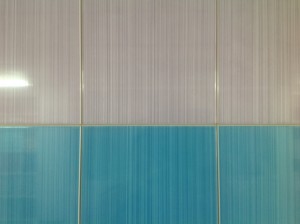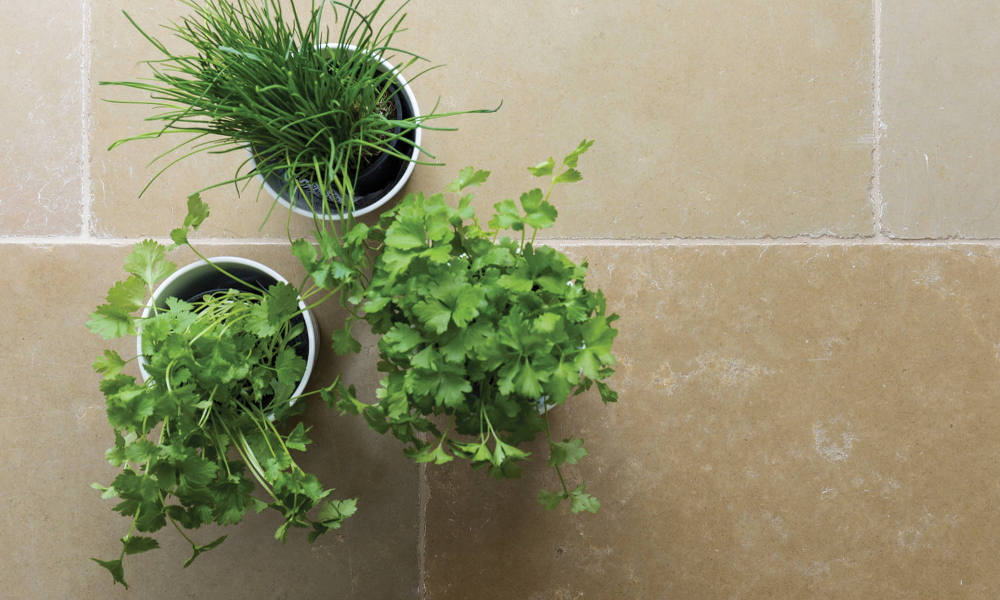
Natural stone is used in kitchens, floors, walls, bathrooms, dining rooms, around swimming pools, building foyers, public areas and façades. Since ancient times, stone has been popular for building and decorative purposes.
The reason you want to seal your natural stone floor is to prevent the following things from occurring and ruining your tiles’ finish and look.
Staining:
This is the most common form of damage. It is the result of oils or other liquids penetrate deeply into the channels within the stone and deposit material that is effectively impossible to remove without destroying the stone.
Salt Attack:
This occurs when salts dissolved in water are carried into the stone. The two most common effects are efflorescence and spalling. Salts that expand on crystallization in capillary gaps can cause surface spalling and can exert considerable expansive forces as its crystals grow.
Acid Attack:
Acid-soluble stone materials such as the calcite (veins) in marble, limestone and travertine, as well as the internal cement that binds the resistant grains in sandstone, react with acidic solutions on contact. Acid erodes the stone, leaving dull marks on polished surfaces. In time it may cause deep pitting, eventually totally obliterating the form. Even mild household acids, including cola, wine, vinegar, lemon juice and milk, can damage vulnerable types of stone. The milder the acid, the longer it takes to etch calcite-based stone; stronger acids can cause irreparable damage in seconds.
Picture Framing:
This occurs when water or grout moves into the edges of the stone to create an unsightly darkening or “frame” affect. Such harm is usually irreversible.
Freeze-thaw Spalling:
This occurs when water freezes in the surface pores. The general term is Frost weathering. The water expands on freezing, causing the stone to spall, crumble, or even to crack through.
There are 3 main types of sealant that can be used for natural stone floors, these are:
Topical sealers
Generally made from polyurethanes or acrylics. These sealers may be effective at stopping stains but, being exposed on the surface of the material, they tend to wear out relatively quickly, especially on high-traffic areas of flooring. This type of sealer will significantly change the look and slip resistance of the surface, especially when it is wet. These sealers are not breathable i.e. do not allow the escape of water vapour and other gases, and are not effective against salt attack, such as efflorescence and spalling
Penetrating sealers
The most penetrating sealers use siliconates, fluoro-polymers and siloxanes, which repel liquids. These sealers penetrate the surface of the stone enough to anchor the material to the surface. They are generally longer lasting than topical sealers and often do not substantially alter the look of the stone, but still can change the slip characteristics of the surface and do wear relatively quickly. Penetrating sealers often require the use of special cleaners which both clean and top up the repellent ingredient left on the stone surface. These sealers are often breathable to a certain degree, but do not penetrate deeply enough (generally less than 1mm) to be effective against salt attack, such as efflorescence and spalling.
Impregnating sealers
Uses silanes or modified silanes. These are a type of penetrating sealer, which penetrate deeply into the material, impregnating it with molecules which bond to the capillary pores and repels water and / or oils from within the material. Some modified silane sealers impregnate deeply enough to protect against salt attack, such as efflorescence, spalling, picture framing and freeze-thaw spalling. Some silane stone sealers based on nanotechnology claim to be resistant to UV light and higher pH levels found in new masonry and pointing.[2] A good depth of penetration is also essential for protection from weathering and traffic.
